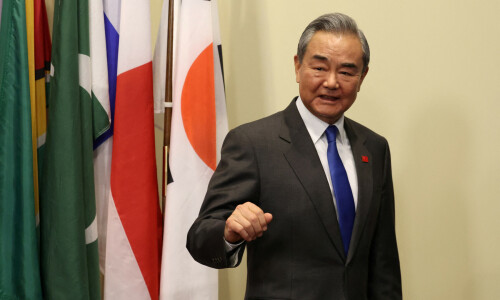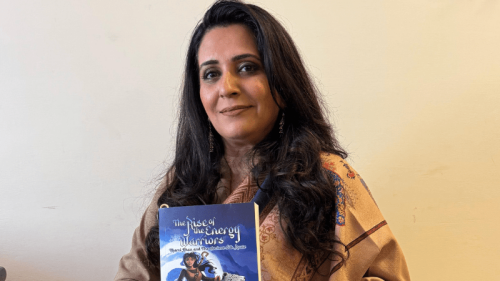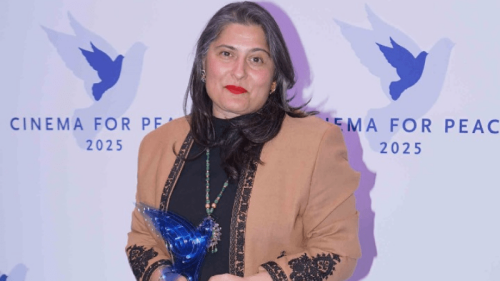A PROMINENT voice of progressive left politics in Pakistan, Yousuf Mustikhan passed away this week at the age of 78. Head of the Awami Workers Party, he had been fighting cancer for the past few years, but that did not stop him from continuing to fight for justice for oppressed people and the smaller provinces.
Despite the political dynamics in the country having changed so much in his lifetime, he remained committed to his political ideals, and sought structural changes in a system he saw as rigged against the working class and the smaller nations.
His futuristic political narrative for Pakistan was very different from the existing mainstream parties. Yousuf sought a fundamental restructuring of the Constitution, envisaging a new social contract among the federating units which treated them as equal partners in building the country. That new social contract, in his view, would recognise historic national rights, including rights to a separate culture, language and ownership of indigenous natural resources.
Unlike these days where we see mushroom growth of politicians and very shallow populism, Yousuf’s entry into politics was not a quest for power. It was for the sake of being part of a movement, the inspiration for which lay in the progressive political traditions of the 1960s that had inculcated in him a nonconformist approach since the time he was in his 30s.
He was never lured by wealth or power.
A man of firm convictions rooted in the ideology of the left, compromise and finding a middle ground to be part of power politics held no appeal for him. As his US-based cousin Ahmer Mustikhan told me: “Yousuf had a contempt for wealth”, and was never lured by money and power.
With his enduring political work, Yousuf inspired generations of activists over four decades. His eloquent critique of the system and the uneven federalism meant he connected not just with the left but with nationalist forces as well. Those not very familiar with his political journey may wonder how a young man from a rich family in Karachi, who studied at a boarding school in Abbottabad, acquired such a lifelong commitment to left politics. He was at a very senior position in Pakistan Burmah Shell and may well have one day become its country head, but instead, he chose to abandon his career and jump into politics. Starting with the National Awami Party, Yousuf became very close to Mir Ghaus Bux Bizenjo and remained his loyal soldier.
Hailing from an upper middle-class family, he declassed himself and joined the working-class political movement, investing his resources, time, energy and passion in this direction. He never flattered and appeased any politician.
In 1975, during the government of then prime minister Zulfikar Ali Bhutto, Yousuf along with his uncle Sattar Mustikhan was picked up by intelligence agencies for allegedly financing the Baloch insurgency taking place at the time. This happened despite the fact that Sattar was so close to ZAB that he lent his car to the PPP leader in the early days of his marriage to his second wife Begum Nusrat Bhutto. He was also among some 10 people who attended that wedding.
Mustikhan was their family title, not their caste; not many knew their caste was Gorgej, a Baloch tribe from Bahu Kalat village in Iran’s Chabahar area. It is said his forebears moved to Karachi in 1860 in search of work. Not having much luck here initially, his grandfather went to Burma, made his fortune there and later returned to Karachi in 1902.
Looking at the present political and ideological disorientation in Pakistan, one comes to the conclusion that this would have been an entirely different country had it been ruled by people like Yousuf. He saw its political derailment and dependency on loans and bailouts as being the outcome of multiple military coups and repeated experiments by unelected and power-hungry generals who showed little respect for the Constitution. This led to increasing chaos and disarray in the country, rather than the stability needed for progress.
One wonders what made Yousuf stay firmly on the course that his seniors like Mir Ghaus Bux Bizenjo had forged, despite witnessing the weakening of democratic movements, which lost ground to right-wing and secular militant groups. Still he did not give up hope and continued his struggle. Perhaps, being a hard-core Marxist, Yousuf believed in his analysis of what ails this country.
According to him, if his comrades’ political struggle and ideology was not successful in winning over the majority, then, on the other side, groups and institutions with vested interests were unable to end instability, inequality and thereby make the country a livable place for common citizens. Deep-rooted discontent and mistrust remains and existential questions refuse to go away. And so the struggle must go on.
The writer is a student of public policy at the Schar School of Policy and Government, George Mason University, US.
Twitter: @mushrajpar
Published in Dawn, October 3rd, 2022












































